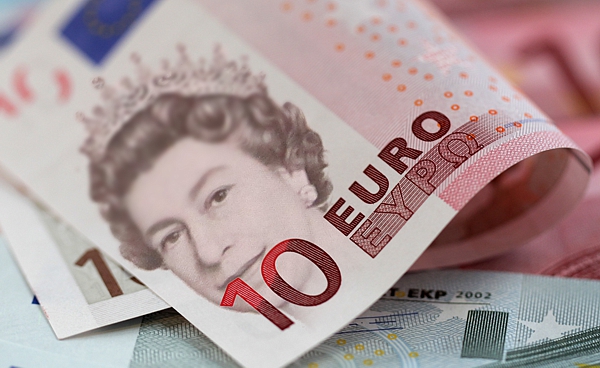First, a simple guide to Brexit mentality.

Photo (minus the bicycle): dhammza
There’s a guy on a bicycle. He’s strong, but not quite as fit as he used to be. He talks to himself a lot (‘I/me…‘), but shouts at others (‘WE/US…’):
“This damn thing isn’t working properly, it keeps pulling to the right/left… but I want to go left/right…”
“OUR WAY OF CHOOSING THE WAY IS BETTER THAN YOUR WAY… WE’VE GOT HISTORY ON OUR SIDE…”
“Sometimes when it’s going too smoothly, I get the urge to put on the brakes… OK, too slow, I’m going to pedal like the clappers…”
“DON’T YOU TELL US WHAT TO DO… EVEN IF IT IS WHAT WE ASKED FOR IN THE FIRST PLACE…”
“These bumps in the road are making it difficult to stay on… who put those bumps in the road anyway… and why does the bicycle not do anything about them?”
“WE DEMAND A SPECIAL COMFORT SADDLE/OUR OWN SET OF HANDLEBARS/OUR OWN CASHBACK OFFER…”
“There’s obviously no place to put the cash made from my little sidelines here… I’ll just leave it in my havens around the world…”
“THIS BICYCLE IS COSTING US 350 QUID EVERY SECOND… OR SOMETHING LIKE THAT…”
“RIGHT THAT’S IT… WE’RE GETTING OFF…”
So he got off and walked. Let’s hope that the skills he has – i.e. those that could have been applied to the errant bicycle – can now be utilised in making a pair of shoes.
Much the same can be applied to most of the member states of the EU, it’s just that it’s being expressed in different ways. It all comes down to self-interest: first national, then regional, then corporate and institutional and finally personal.
- Political leaders want to either keep their jobs or grab somebody else’s, so they appeal to where their electorate resides (country/region/class), hectoring them with, “You the people!” (shouldn’t that be the other way round?). The bicycle becomes either the answer or the problem, depending on the needs of the politician.
- Corporations are only concerned with profit and taxes, so they want to stay on the bicycle, but make it their own.
- The people are fed up. They don’t want to do any pedalling, not least because the owners of the bicycle don’t appear to care what happens to them – even though many of them do care, but don’t know how to tell everyone. Consequently, the people are open to persuasion. (Some would say open-minded, and some would interpret ‘open’ as in ’empty’. Not me. Honest.)
But we do need to fix the bicycle so everyone can stay on… and go places
If we manage to convince enough of the voters to stay on the bike, that’s when the real problems begin. Because the margin will be tiny, leaving much of the electorate disgruntled, belligerent and down-right nasty. It is at this point that we must take a look at the real problems with the contraption we’ve been trying to ride for the last few decades, and get the people behind the idea of improving it so that is fit for purpose.
Like this:
What's it all about?
Ask not what your country can do for you: ask what your country is doing to European union.
Since officially becoming an institution in 2009, the EU Council (i.e. the heads of government/state – see my previous post for clarification) has increasingly put pressure on the other institutions (the ones that actually make the legislation), depending on the political precariousness of their parties back home.
In the past couple of years, Council summits have been a kind of unreality TV event, with the Big Shot National Leaders riding into town in their helicopters and jets, staff and pundits fawning in their wake as they glide their armoured limousines into the most boring courtyard on earth to be greeted by the world’s media (most of whom haven’t the faintest idea of what’s going on – or, more precisely, what should be going on), before entering the Very Big Brother House where all-day meetings evolve into late night pizza-fuelled manoeuvres during which sniping, ambushing, out-flanking and all manner of military strategies are engaged (not least in checking for reactions from the Home Front) and finally, as it dawns on them at dawn that they have to cobble together something that at least sounds credible, they knuckle-drag themselves back to the barons’ press and proudly slur how they have fought for Britain’s/Slovakia’s/Greece’s cause against the Evil Twenty-Seven.
Following which, the Council of the EU and the Parliament turn the ‘deals’ into legislation and when the Commission does as it’s told and implements said policies and/or directives, the Big Shot National Leaders trigger the Blame Game, saying, “It wasn’t me sir, it was those horrible Commission kids what done it!”
I really don’t think this is what the EU is for…
… or that the Council Circus and attendant media frenzy constitutes making the best use of its institutions. Although I do believe that more democratic oversight is needed (see next panel), the last place it should come from is country leaders. It’s a bit like the CEO coming down to the shop floor and telling her workers how to make the product: the workers are there to make the product, the CEO is there to run the business.
The power to legislate must only be (and is) in the hands of the institutions that have been set-up to do that job: the Council of the EU and the European Parliament. Their members have been elected to do so, while heads of state/governments have been elected to do another job entirely: run their countries for the good of their citizens… within a wider European community (which should be their remit whether they are member states or not!).
What Am I Voting For?
Democratic deficit
A phrase bandied around, like ‘unelected Eurocrats’, ‘unwanted immigrants’ and ‘we want our sovereignty back’ by people who have no idea what they’re talking about.
As in unelected civil servants; inmigrantes no deseados; our sovereign the queen, who’s immigrant family made up their surname so they would fit in better with the locals.
Yes, the democratic deficit does exist and we need to ensure more robust democratic scrutiny: possibly direct election of the Commission president along with the MEPs, plus adding a second house to the European Parliament, made up of national MPs, with authority to supervise legislation passed in the lower (current) house, would be a couple of my ‘umble suggestions.
Or, we could go the other way and simply re-introduce the Lord Vetinari approach: “I believe in One Man, One Vote. I’m the Man… ”
Stop That Train!
The gravy is slopping all over the French place
If the European Parliament wants to be taken seriously by anyone at all, about anything… they’re going to have to stop moving to Strasbourg for a week every sodding month.
Or… perhaps the Bundestag could decamp to Bonn once a month, for old time’s sake. The Finns and Swedes could swap parliaments every month, to keep each other’s local populations happy. The French parliament, of course, would obviously switch to London on a monthly basis, in honour of the war years.
Any more suggestions for bloody stupid things to do with national and intra-national assemblies, anyone?
Show Me the Money!
It’s not pocket money
Proper and strict supervision of MEP allowances! When I found out that this isn’t currently the case, my gob was well and truly smacked. Sure, there are rules about what the money can be spent on, and it’s technically possible that an audit can be initiated at any time… but no receipts are expected, so how an audit can be made is beyond me.
So that’s almost forty million euros that’s unaccounted for every year. I don’t doubt that most of it is spent wisely and responsibly.
Eh Nigel?

I had to pixillate this… and even now it makes me nauseous.
Staff and Distaff
We’re people people, people.
Back in the days of yore (when ‘yore’ was a common enough word, but I’m damned if I know what it means now), a staffing structure and remuneration/compensation package was put together, in order to attract the best candidates and ensure their long-term employment prospects in the EU’s institutions.
But the days of yore are long gone (along with its meaning), while almost the same structure is still in place. Consequently there is an imbalance in competences and/or experience that sometimes doesn’t allow for the best outcomes. Too often staff are promoted just because they’ve had a job for a long time, it’s almost impossible to be sacked for disciplinary infractions and/or simply doing bugger-all, and internal doors are kept revolving for some managers who literally have nothing better to do.
Note please, all you worker bees, that I am in no way casting aspersions about your good selves. Rather, that the HR infrastructure needs to be – shall we say – realigned in order to get the best (not the most) out of the workforce.
And that’s from someone who shudders when he hears ‘HR’ or ‘human resources’. What was wrong with ‘personnel’?
By Any Other Name
Does what it says on the tin
Like I said in an earlier post: Change the flipping institution names!
Then:
- Get hold of some people who know how to design and run a website and make all institution sites look/feel the same.
- Ensure everything is accessible and available to the stupidest people possible (that probably includes me)
- Get hold of some other people who know how to run social media, make them pass an EU concours, and get them to run your social media.
- Do not, repeat DO NOT recruit staff from within who happen to be ‘quite clever at IT’.
M.I.S.S.
Make It Simple Stupid
Some work needs to be done to make legislative procedures easier and reduce legislation to what is really necessary. Unhappily for UK Brexiteers, it is Juncker’s Commission that has shown the way recently, with a big reduction in legislative proposals.
Meanwhile, for instance, the member states in the form of the Council have haggled and mumbled and huffed and niggled both the Maternity Leave Directive and the Passenger Name Record proposal into a slimy mire of never-ending counter-proposals for… seven years! Eventually the Commission dropped the MLD because even the Council members couldn’t agree between themselves, while the PNR was squeezed through with the Council finally getting its way.
Basically, something should be done to smooth the way of legislative procedures, otherwise we’ll carry on seeing the Commission proposing ever-more preposterous suggestions, knowing that they will be watered down once the Council of the EU and the EP get involved in haggle and counter-haggle.
CAP
Common Agricultural Protection Policy
For us non-French, the first time we pootle around rural France is when one of life’s great epiphanies slaps us around the head like a crusty prime foie gras-filled baguette dipped in lashings of Monbazillac: “Oh, so that’s where all the money goes.”
True, as a percentage of the EU’s budget, the CAP has dramatically dropped since its high of 70-odd percent.
But it’s still a sorry mess, favours agri-business over smaller local farmers, damages indigenous flora and fauna (plus bees!), distorts supply and demand, shows a total disinterest in public health, artificially raises food prices and/or squeezes producers, and not least of all: presents a Bloody Huge Problem to producers in developing countries.
Me – I have no idea what to do. But whatever it is, it will be unpalatable to La France, for all of the yumminess of her products. Let’s help her find a way.
Cashback Special! Last Century Only!
Remove the rebate
Since its inception, the member states have negotiated, wrangled, bargained, haggled and generally whined about the cost of membership to the club they so (and not so-) dearly want to be members of.
It really is about time we worked out a simple membership fee… or alternatively we could go further and have cash-back vouchers printed and sent to every citizen in the countries that demand a rebate.

Rapping Knuckles
If your member misbehaves…
For the EU to function with clarity and credibility, its member states must be seen to adhere to the pledges they took when applying for membership.
Currently, for sanctions to be imposed (for instance, removal of voting rights within the Council), a unanimous decision must be made against a member state if it fails to conform. Which, as we can see right now, makes a mockery of the EU’s defence of democratic rights, as Poland and Hungary defend each other while imposing non-democratic policies on their populaces.
This is an easy one that even I can figure: apply QMD (Qualified Majority Decision) and it’s all sorted.
Consider:
- A number of modern beat combos get together to form an association that promotes anti-racial music.
- They’re all in agreement, so they decide that for a member to be kicked out, there must be a unanimous vote.
- The association is expanded, and a number of new modern beat combos are admitted.
- A couple of years later, two of them bring in new band members, who write songs featuring racial awfulness like, ‘If you put a chain on a bicycle it won’t sing Old Man River.’
- The rest want to kick them out, but can’t, as the two bands refuse to vote against each other.
Now, if I can figure this out…
Money Matters
It’s about time. And time is money.
“Look, see – that silly euro isn’t working… it’s like the Germans and French are playing at toy banking… it’s lucky we stayed out… just proves that Brussels is an incompetent tyrannical money-sucking monster!”
The euro needs to be given a boost in the shape of more fiscal integration (e.g. common fiscal and tax policies and possibly the appointment of a Eurozone finance minister), or there will be no euro. And no euro is a Very Bad Thing – not just for the Eurozone, but for everybody in the Whole Wide World.
More euro would be a very Good Thing, and this under-educated dimwit has a sneaking suspicion that the real reason the euro has so many problems is that the money has been set up, but not truly established as a currency. He would also whisperingly suggest that if the UK had joined when it could, its undoubted financial muscle and experience would have contributed greatly towards establishing the euro as the world’s leading currency.
I also don’t doubt that there are millions out there with much the same grasp of economics and finance as me, but can’t quite bring themselves to accept money that doesn’t have the visage of their church’s head on it (damn those religious fanatics).

Learn From Mr Creosote
When you’re full-up, you’re full-up
Given that there are already some member states that do not fulfil the criteria required to join, it follows that we cannot allow further expansion until at least those criteria have been met by those states.
It’s not Eurovision, you know, so everybody STFU about Turkey.
The Influence of Affluence
What’s the most important room in the house? The lobby.
It’s where all the real deals get done, negotiations negotiated and pockets lined (shock horror gasp!).
We need to make the EU’s lobby as transparent as possible – no, make that totally transparent. All meetings to be documented, recorded, minuted, photographed, painted, Etch-a-Sketched… whatever it takes to ensure that we all know who is influencing whom and why.
Also, a record should be made of all appointments of EU officials before, during and after their tenure in the EU. It’s not so much about conflict of interests as, “Mmmmm… interests… “.
Actually, this should be applied to all governments everywhere.
Size Matters. Not.
Little = Big
It may come as a surprise to you that not all countries are treated equally. Of course, they are supposed to be treated equally: after all the EU is above all an equitable organisation. Isn’t it?
When Portugal and Greece broke the Stability and Growth Pact rules, they were punished (just what Greece needs obviously). But when France brakes the same rules, nothing happens; during the most recent occurrence, Mr Juncker said that it was because France is… France.
Although I’ve singled out France, this is not a typical bit of Brit France bashing – I’m an equal opportunities Brit who strongly believes that bashings should be shared equally among all foreign types. When I say ‘Brit’… I mean mostly Brit… OK a Bit-Brit… but not a two-bit-Brit, OK? So I’ll be expecting my fair share of bashings when I post this.
But I somehow can’t imagine Mr Juncker saying, “Ah, we can ignore this little infraction – after all, Finland is… Finland.”
Anyway, this is not an easy one to sort, but somehow the voting system in the Council of the EU needs to be tweaked, to ensure that, once and for all, size doesn’t matter.
Cancel the Greek Debt
Most of it, anyway
It’s a bloody nonsense that we’ve put the Greek people through this (I’ve been told to rein in the swears, but I believe they’re warranted here) shit.
Yes, we know that on application the Greek government told some ridiculous porkies. But it first follows that the EU didn’t figure them out during the application process, and second follows that certain banks loaned to the Greeks without checking first whether they could ever pay back those loans.
Currently the banks act as if they are in It’s a Wonderful Life…
Bedford Falls Town Council: Of course that nice Mr Karamanlis can join our happy clan – he’s a lovely chap and his missus bakes a great kleftico.
Bailey Building and Loan: You want to borrow how much money? Certainly. I’m sure you’re good for it – just leave your business plan with my secretary. You keep on coming back for more as and when you need it.
Henry F Potter: Oh dear, oh dear… looks like we’ve messed up eh? I’m afraid that there’s no alternative but long-term suffering, humiliation and degradation.
So the EU needs to big up and act as the beneficent organisation it’s supposed to be. Plus make the banks responsible for their own actions.
And every time you hear a bell ring, it’ll be Wolfgang Schäuble revolving on his money-counting finger.
Make the EU a Refuge
What do we call them, immigrants, refugees or just foreign scum?
Boris Johnson’s very existence depends mostly on immigrants: French, Swiss, German, Russian Jewish and Turkish all feature in his ancestry. Which makes him about as English as me.
Nigel Farage, although sounding French, actually represents a very, very slow covert invasion by the accursed Germans, what with his Teutonic great grandfather und his luffly vife. (You really can hear my very tasteful rendition of a German accent, can’t you?).
Iain Duncan Smith is a bit Japanese.
Michael Gove is from another planet.
In the UK, as in most EU countries, there are people who cast a very wary eye over the tidal wave of forrins attempting to live on a bit of their green and pleasant land. That is, people who have been bombed, hunted, persecuted and generally kacked-upon who are desperate to find sanctuary wherever possible, are being prevented from finding refuge by… foreigners. Because we all are.
The EU should be that sanctuary and the EU should grow some by positively welcoming and housing those people: people who will undoubtedly be nett contributors to their respective host nations, bring new life and exuberance, enrich local culture and – most important of all – open fab new eateries!
In order to do this, the EU needs to up its Schengen game by putting in place effective border police (land and sea), finance proper facilities for refugee processing and temporary housing, use its member states’ naval capabilities to patrol its seas and rescue trafficked and desperate migrants, and improve the Schengen Information System so we can keep the Good Guys and filter the Bad Guys.
Perhaps we should also look at how we could reward participating member states, rather than sanctioning those who resist.
It seems to me that, should we ask most migrants and refugees if they actually want to contribute to the place they’ll live, the answer would be, “Bien sûr/seveda/na sicher/självklart/of course – we’ll learn your language too… probably to a higher standard than those who would send us back to Bongo Bongo Land.”
‘Nuff said.
Except that, surely part of its raison d’être should be to act as a beacon of kindness and security to the less fortunate of the world.
Or is that just me being soft?
This is by no means a comprehensive list, while I have no qualifications, experience or access whatsoever that would back up any of the above. I am just an ordinary bloke, asking questions of People Who Know Stuff and looking up details in the bloody awful miasma of the EU’s official websites (the answer’s out there, but Google is the best way to find it).
Since Cameron’s lilly-livered scaredy-cat promise of a referendum (“I have no idea what to do… that Nigel’s really a pain… plus Boris is turning against me… ooh I’m all a’tremble… so what do you lot think?”), he’s been trying to big up his bigness by making waffly demands of the other member states.
And it occurred to me that yes, as a supporter of the EU and its goals, I think there are many ways the EU could and should be reformed, but they’re being overlooked because of Dave’s ego-tantrums.
So that’s what all of the above is. I might well be wrong on some or many points, but I do hope that this might serve as a way for EU-philes to get to grips with what needs to be gripped and make the world a better place. In the meantime, the Kraken of the Evil Right is awakening across Europe, so it’s high time we got our poop together and got on with making everything work properly.
Or my little girl is eventually going to be royally pissed off with all of us. Not that she can ride a bike yet.
(I wouldn’t mind better roads to ride my bike on in Brussels, either, but that’s for another post.)
PS: Given my utter disdain for the Brexiteers (ugly word, ugly people), I will only accept comments from people I judge to be largely in favour of the EU, including of course, those who are smarter than me and want to point out my errors.
I will be in London on the day of the referendum, hanging around polling stations and asking people my two questions, plus which way they voted. Should make for an interesting, if depressing, post.
*Hat tip* to Ralph Grabuschnig for reference and link to this!

Go Bob! A thoroughly excellent read, and pretty much agree with all your proposals. You need to make a TV prog on all this. Put a proposal together, maybe someone out there might commission it and make it. Even after the referendum if still needs addressing. You’d look good in front of the camera. If Michael Moore can do it so can you – and you’re much better looking, sophisticated, etc etc. Go Bob!